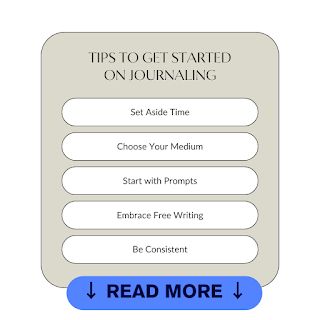Stress and anxiety are widespread concerns that impact both mental and physical health, often leading to symptoms such as muscle tension, headaches, difficulty concentrating, and disrupted sleep. Chronic stress increases the risk of cardiovascular disease, weakens the immune system, and contributes to mental health disorders like depression and generalized anxiety disorder. Given these potential consequences, it is essential to adopt practical and effective management strategies that fit into daily life. While therapy and medication may be necessary for some individuals, incorporating brief, structured activities into a daily routine can serve as a valuable supplement to professional care.
Research shows that small, intentional habits can significantly reduce stress levels by regulating the nervous system and improving emotional resilience. Techniques such as deep breathing exercises activate the parasympathetic nervous system, lowering heart rate and blood pressure. Mindful meditation has been shown to reduce cortisol levels, the primary stress hormone, while progressive muscle relaxation alleviates physical tension associated with anxiety. Journaling promotes cognitive processing of emotions, and short physical activities like stretching or brisk walking trigger endorphin release, which enhances mood. These interventions do not require significant time or resources, making them accessible and effective for most individuals.
The key to reducing stress and anxiety lies in consistency. Engaging in five-minute stress-relief techniques daily can create long-term positive effects on mental well-being. By building these habits into a routine, individuals can develop greater self-awareness, emotional control, and physiological balance. While no single method will eliminate stress entirely, using a combination of these simple techniques can significantly improve the ability to cope with daily pressures. Over time, these small but meaningful changes can contribute to improved focus, better sleep quality, and overall emotional stability, reducing the impact of stress and anxiety on daily life.
1. Deep Breathing Exercises Deep breathing activates the body’s relaxation response. One effective method is the 4-4-6 technique: inhale for four seconds, hold for four seconds, and exhale for six seconds. This practice slows the heart rate, lowers blood pressure, and reduces stress hormones. Deep breathing can be done anywhere and provides immediate benefits.
2. Progressive Muscle Relaxation (PMR) PMR involves tensing and relaxing muscle groups, starting from the feet and moving up to the head. This technique releases physical tension associated with stress. Practicing PMR for five minutes daily can improve relaxation, reduce anxiety, and promote better sleep.
3. Journaling for Mental Clarity Writing down thoughts and feelings helps process emotions and reduce mental clutter. A simple way to start is by listing three things you are grateful for or noting any concerns. Journaling provides perspective, promotes self-reflection, and enhances emotional well-being.
4. Mindful Meditation Mindfulness meditation involves focusing on the present moment without judgment. A quick meditation session includes sitting quietly, closing your eyes, and concentrating on your breath. When thoughts arise, acknowledge them and refocus on breathing. This practice improves concentration, reduces stress, and fosters emotional stability.
5. Stretching and Movement Breaks Physical movement releases endorphins, which help counteract stress. A five-minute stretching routine can relieve muscle tension, improve circulation, and enhance overall mood. Simple movements like neck stretches, shoulder rolls, and back extensions provide immediate relief and increase relaxation.
6. Visualization Techniques Guided imagery or visualization involves picturing a calm and peaceful setting. Imagining yourself in a serene environment, such as a beach or forest, helps shift focus from stressors. This practice reduces anxiety, improves mood, and provides mental relaxation in just a few minutes.
7. Listening to Soothing Music Music has a direct impact on emotions. Slow-tempo or instrumental music can lower heart rate and cortisol levels. Listening to calming music for five minutes can instantly improve mood and reduce stress. Creating a playlist of relaxing tracks ensures easy access to a quick stress-relief tool.
8. Hydration and Mindful Drinking Dehydration can contribute to irritability and fatigue. Taking a few minutes to drink a glass of water mindfully, focusing on each sip, can promote relaxation. Adding herbal teas, such as chamomile or green tea, can further enhance stress reduction benefits.
9. Positive Affirmations Repeating positive affirmations helps shift negative thought patterns. Simple affirmations such as “I am calm and in control” or “I choose peace over stress” can rewire the brain for resilience. Saying these affirmations out loud or writing them down reinforces their impact.
10. Digital Detox Breaks Constant exposure to screens and social media can increase anxiety. Taking a five-minute break from digital devices allows the brain to reset. Engaging in an offline activity, such as looking out the window or stretching, provides a mental refresh and reduces overstimulation.
Incorporating these five-minute habits into daily life can effectively reduce stress and anxiety. Small, consistent actions have a cumulative impact on well-being. By making these simple changes, individuals can cultivate resilience and improve overall mental health.





